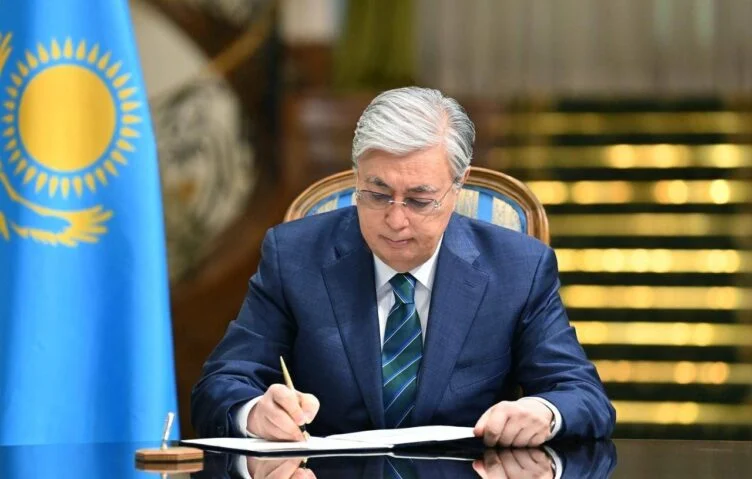Joseph S. Nye, Jr.: Оn nuclear risk, American hubris, great-power competition, and more
Joseph S. Nye, Jr., Says More…
Project Syndicate: In your new memoir, A Life in the American Century, you describe implementing US President Jimmy Carter’s policy of ensuring that plutonium formed from uranium in nuclear reactors was not reprocessed and reused. Is there a comparable rule or initiative that could help mitigate nuclear risks today, when, as you recently wrote, “conditions seem especially dire”? What are the most glaring gaps in current nonproliferation efforts?
Joseph S. Nye, Jr.: The beginning of the 1970s was marked by widespread fear of oil shortages and the belief that the world did not have enough uranium to power all the nuclear reactors we would need to replace the oil. We were headed for an economy based on plutonium – a weaponizable material. Some predicted that dozens of countries would soon possess nuclear weapons. Yet today, there are just nine nuclear-weapons states – still too many, but far fewer than expected – and the implementation of an internationally safeguarded “once through” fuel cycle (which left plutonium locked up in the stored spent fuel) is a major reason why.
Today, the threat of proliferation comes less from a new technology than from the loss of credibility in extended deterrence. Russia’s full-scale invasion of Ukraine, which gave up its nuclear weapons in 1994, has given some countries second thoughts about their non-nuclear status. Restoring the credibility of the US nuclear umbrella – not least by making clear to our allies that we are not embracing isolationism – has now become urgent.
PS: “In a relative sense,” you wrote in February, “America has been in decline ever since the end of World War II,” when it accounted for half the world economy and held a monopoly on nuclear weapons. But it was immediately after the Cold War that the US had its “unipolar moment.” To what extent is today’s global fragmentation rooted in that critical period? What did US policymakers get right, and where did they go wrong?
JSN: In the period between the Soviet Union’s collapse in 1991 and the start of China’s rapid economic rise, analysts described the US as the world’s sole superpower. This fueled hubris among some US policymakers, who began to overestimate how much control over world affairs the US really had. The 2003 invasion of Iraq is a case in point. It was easy for the US and its allies to defeat Saddam Hussein’s regime militarily, but transforming Iraq – let alone the Middle East – was another story. The world was never as simple as some policymakers believed it was, and it is even more complex today.
PS: You have criticized the use of the term “Global South” by those claiming, for example, that developing countries are becoming increasingly alienated from the United States and the geopolitical West. Misleading terminology notwithstanding, a significant backlash does seem to be forming among the developing and emerging-market countries that China has lately been courting. What steps should the US and its allies be taking in response?
JSN: The term “Global South” lumps together many middle- and lower-income countries with diverse economic needs and a variety of political cultures and alignments. Many important countries, such as India, are not even located south of the equator.
It is true that China has been wooing such countries. But, so far, the results have been mixed. Pew polls show that the US still has more attractive or soft power than China in most of the 24 countries surveyed. Though many want access to the large Chinese market, they also welcome an American presence to forestall Chinese bullying. A smart US policy would reflect the needs and interests of each country, rather than lumping them under one label.
By the Way…
PS: In A Life in the American Century, you highlight the policy role of nongovernmental groups, initiatives, and networks. How do these nonstate actors shape US power, and how can their influence be better leveraged to support a constructive foreign policy, particularly at a time of far-reaching geopolitical change and deep domestic polarization?
JSN: Nongovernmental agencies can sometimes explore and convey information more effectively than formal government meetings that are bound by protocol. During the Cold War, the Pugwash Movement helped pave the way for nuclear-arms control. Today, there are many “Track 2” conversations between the US and China. In the book, I give examples from the Trilateral Commission that I co-chaired, and from the Aspen Strategy Group, which I helped form in the 1980s and still meets today.
PS: In your book, you recount your efforts to make Harvard’s Kennedy School more “woman-friendly.” Describe your approaches and their impact.
JSN: For starters, we increased the proportion of women students and faculty, including hiring a woman for the crucial position of executive dean. We also established a Women and Public Policy Program, hosted a Council of Women World Leaders, and held an International Women’s Conference. There is still room for improvement, but the school is headed in the right direction.
PS: “The story I am telling is personal,” you write in the book’s preface, “but I hope it helps historians to look back, and our grandchildren to look forward.” What lessons do you hope the next generation of American leaders will draw from your story?
JSN: All told, the US holds a strong hand in the great-power competition, but if we succumb to hysteria about China’s rise or to complacency about its “peak,” we could play our cards poorly. Discarding high-value cards – including strong alliances and influence in international institutions – would be a grave mistake. My biggest concern, however, is about changes happening at home. Even a country with huge external influence can lose its internal virtue and attractiveness to others. The Roman empire long outlasted its republican form of government.
I sum it up at the end of the book:
“Today, the world is richer and riskier than ever before. I am sometimes asked whether I am optimistic or pessimistic about the future of this country. I reply, ‘Guardedly optimistic.’ America has many problems – polarization, inequality, loss of trust, mass shootings, deaths of despair from drugs and suicide – just to name a few that make headlines. There is a case for pessimism. At the same time, we have survived worse periods in the 1890s, 1930s and the 1960s. For all our flaws, the US is an innovative society that, in the past, has been able to recreate and reinvent itself. Maybe Gen Z can do it again. I hope so.”
Copyright: Project Syndicate, 2024. www.project-syndicate.org





Все комментарии проходят предварительную модерацию редакцией и появляются не сразу.